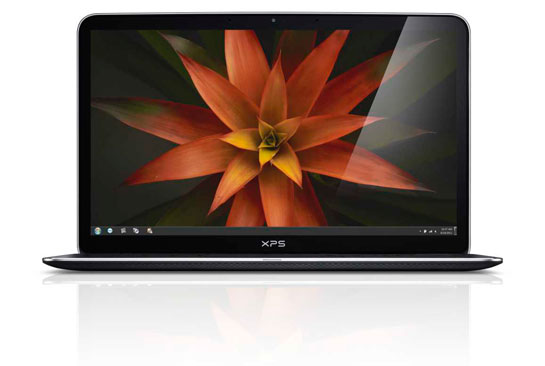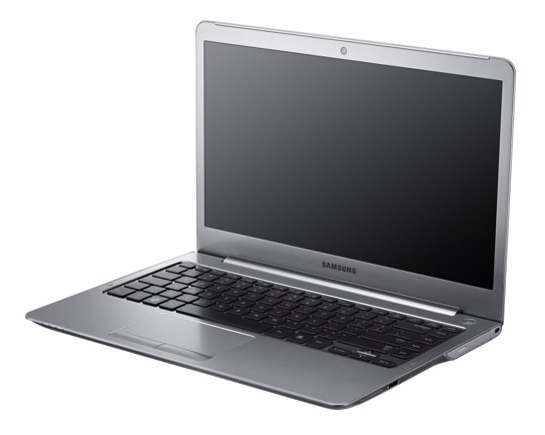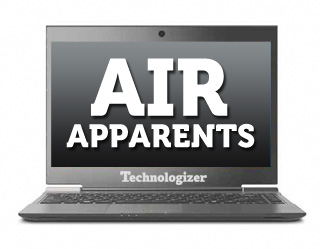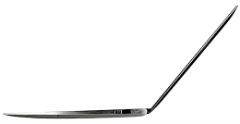Donald Morrison Melanson of Engadget has a nice piece making a point that resonates with me: There are some nice Ultrabooks, but it’s silly to call them Ultrabooks, as if they were something other than thinnish laptops. The tech industry loves to come up with new buzzwords and to declare new categories of stuff. But I’ll bet that consumers–even if they end up buying lots of Ultrabooks–won’t think of them as something discrete and new.
Tag Archives | Ultrabooks
AMD Readies Ultrabook Competitor
Think that Ultrabooks–which generally go from $900 to $1400–are too pricey? AMD wants to bring the price down to $800, says Digitimes’ Monica Chen. (Machines based on its chips will have to be called something other than “Ultrabooks,” though–that’s Intel’s moniker.)
No comments
Dell’s Little Big Ultrabook Looks Like a Winner

The more Ultrabooks that get unveiled here at CES, the more convinced I am that it’s silly to discuss them as if they were a coherent new class of portable computer. No two manufacturers seem to agree on what an Ultrabook should be. That’s neat, since it means they’re experimenting. And on Tuesday, Dell introduced my favorite answer so far to the question “What is an Ultrabook?” in the form of its new XPS 13.
No comments
Samsung Stretches the Definition of Ultrabook

When Intel started talking about the concept of Ultrabooks last year, I thought the definition was pretty simple: Ultrabooks were MacBook Air knockoffs that had Intel processors and ran Windows 7.
It turned out to be more complicated than that. Ultrabooks do use Intel CPUs–they’re Intel’s idea, after all–and they do run Windows. But not all of them bear much resemblance at all to the Air. Really, as long as PC makers design Ultrabooks to be fairly thin, they have lots of latitude to build different sorts of portable computers at different price points.
Case in point: Samsung’s Series 5 Ultra systems, the company’s first official Ultrabooks, which it’s announcing here at CES. There’s a Series 5 Ultra with a 14″ display. (Most Ultrabooks to date have been 13-inchers.) There are ones with 500GB hard disks. (Most Ultrabooks use pricey flash storage and max out at 256GB.) There’s even an optical drive option. (I’d assumed that every Ultrabook would ditch the drive in order to achieve the maximum possible razor-thinness.) And while there’s certainly a dash of Air-like look-and-feel to the industrial design, they’re not clones.
No comments
Yet Another Take on the Ultrabook: HP’s Spectre 14 Envy

Earlier today, Samsung proved that an Ultrabook can have all sorts of standard laptop features, such as a hard disk and an optical drive, and still be an Ultrabook. Now HP has announced its second Ultrabook–after last year’s Folio–and it too is trying carving off a unique niche. The new Envy 14 Spectre, which was just announced here at CES, is an Ultrabook for well-heeled enthusiast types who like lots of features and aren’t obsessive about their thin-and-light notebook being all that thin or all that light.
No comments
Air Apparents! Ultrabooks and Other Slimmed-Down Windows PCs
 For the longest time, Apple laptops lived in their own world of stylish design, while PC makers remained steadfast in their focus on beefier specs for lower prices. I remember looking two years ago for a Windows PC that aped Apple’s style–awesome keyboard, smooth trackpad, sturdy aluminum build, decent specs–and being disappointed that such a computer simply didn’t exist.
For the longest time, Apple laptops lived in their own world of stylish design, while PC makers remained steadfast in their focus on beefier specs for lower prices. I remember looking two years ago for a Windows PC that aped Apple’s style–awesome keyboard, smooth trackpad, sturdy aluminum build, decent specs–and being disappointed that such a computer simply didn’t exist.
How things have changed. Apple’s revamped MacBook Air became a runaway hit while the rest of the PC market stagnated, and suddenly every computer maker wants to make thinner, lighter and prettier products. Intel calls these creations “Ultrabooks,” and provided PC makers with strict criteria for weight, thickness, battery life, processor power and pricing to qualify for the marketing jargon. This new wave of notebooks run the latest Intel Core processors, cost around $1,000, and go toe-to-toe with the MacBook Air in physical measurements.
Over the next few months, a bevy of these machines will strut their stuff for laptop shoppers. Here’s what we know about every Ultrabook or similar product that’s on the market or on the way.
No comments
HP’s Ultrabook Isn’t a MacBook Air Clone
 I’ve been thinking of the “Ultrabook” category of laptops–devised and named by Intel–as being pretty much synonymous with “MacBook Air lookalikes that run Windows.” But HP’s new Folio (no relation to the Foleo) is an Ultrabook that isn’t that Air-like. It aspires to be practical and portable, not super-sleek and sexy.
I’ve been thinking of the “Ultrabook” category of laptops–devised and named by Intel–as being pretty much synonymous with “MacBook Air lookalikes that run Windows.” But HP’s new Folio (no relation to the Foleo) is an Ultrabook that isn’t that Air-like. It aspires to be practical and portable, not super-sleek and sexy.
The Foleo 13 is a 13″ system with an Intel Core i5 processor. It’s pretty thin (.71″) and pretty light (3.3 pounds) but thicker and heavier than the Air and Toshiba’s Portege Z830. It has, however, a fuller complement of ports than the Air, including Ethernet, HDMI, and USB 3.0, with no dongles required. HP claims up to 9 hours of battery life vs. Apple’s 7 hours; that’s impressive if independent testing backs it up. And the price–$899.99 for a machine with 4GB of RAM and 128GB of solid-state storage–undercuts the most comparable MacBook Air by $400.
Buyers of Windows laptops have historically had a limited appetite for systems that emphasize portability rather that offering as many specs as possible at a low price. I don’t think it’s a given that Ultrabooks will catch on–HP’s press release for the Folio quotes IDC saying that it expects sales of 95 million Ultrabooks a year by 2015–but I like the compact form factor and am happy to see PCs with solid-state disks getting affordable, so I hope the category thrives.
No comments
Please, Call Them Ultrabooks
 Intel’s plan to revitalize the thin-and-light laptop has been out in the open for over a week, but now the company’s going a step further and giving this product category a new name: Ultrabooks. These computers will measure less than 0.8 inches thick and cost less than $1,000 when they hit the market later this year.
Intel’s plan to revitalize the thin-and-light laptop has been out in the open for over a week, but now the company’s going a step further and giving this product category a new name: Ultrabooks. These computers will measure less than 0.8 inches thick and cost less than $1,000 when they hit the market later this year.
For now, I just want to talk about the name. It’s snappy, as far as jargon goes, but it also leaves me feeling cold. The tech industry is littered with marketing buzzwords for new kinds of computers, but not all of them stick, and as history shows, you just can’t force this kind of thing.
